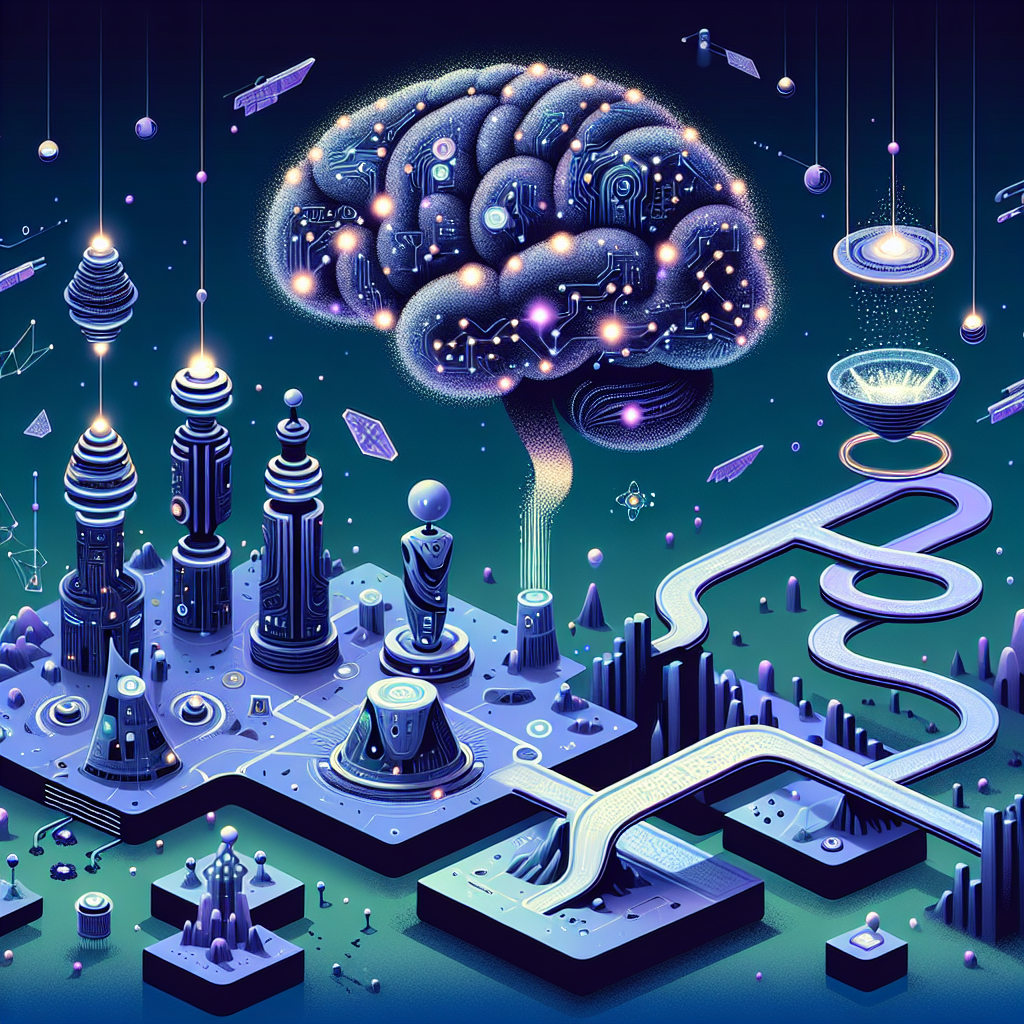In recent years, artificial intelligence (AI) has been making a significant impact on various industries, and the gaming industry is no exception. AI technology has been reshaping game worlds in numerous ways, from enhancing the realism of in-game characters to revolutionizing gameplay mechanics. In this article, we will explore the ways in which AI is transforming the gaming landscape and the implications of these advancements for both players and developers.
One of the most noticeable ways in which AI is reshaping game worlds is through the improvement of in-game characters. Traditionally, non-player characters (NPCs) in video games have been limited in their behavior and interactions with players. However, with the advent of AI technology, NPCs are becoming more sophisticated and lifelike. AI algorithms can now enable NPCs to exhibit more complex behaviors, such as learning from player actions, adapting to changing circumstances, and even forming emotional connections with players. This level of realism adds a new dimension to gaming experiences and makes game worlds feel more immersive and dynamic.
Another way in which AI is transforming game worlds is through procedural generation. Procedural generation is a technique that uses algorithms to create game content, such as levels, environments, and quests, on the fly. This allows game developers to create vast and diverse game worlds without having to manually design each element. AI-powered procedural generation can also adapt to player preferences and behavior, creating personalized experiences for each player. This not only saves time and resources for developers but also ensures that players have unique and engaging gameplay experiences.
AI is also revolutionizing gameplay mechanics in video games. One of the most exciting developments in this area is the use of AI to create adaptive difficulty levels. AI algorithms can analyze player behavior in real-time and adjust the difficulty of the game accordingly. This ensures that players are constantly challenged and engaged, regardless of their skill level. AI-powered adaptive difficulty also eliminates the need for static difficulty settings, providing a more dynamic and personalized gaming experience.
Furthermore, AI is being used to enhance the overall game design process. Game developers can now use AI algorithms to analyze player feedback, playtest data, and market trends to inform their design decisions. This data-driven approach allows developers to create games that better resonate with their target audience and optimize gameplay experiences. AI can also assist in the creation of game content, such as art assets, animations, and sound effects, reducing development time and costs.
In addition to these advancements, AI is also being used to improve player engagement and retention. AI-powered recommendation systems can analyze player preferences and behavior to suggest personalized content, such as games, in-game items, and social connections. This not only enhances the player experience but also increases player retention and monetization for game developers. AI can also be used to create more engaging and immersive storytelling experiences, such as dynamic narratives that adapt to player choices and actions.
Overall, AI is reshaping game worlds in profound ways, from enhancing in-game characters to revolutionizing gameplay mechanics and design processes. These advancements are not only improving the quality of gaming experiences but also opening up new possibilities for innovation and creativity in the gaming industry. As AI technology continues to evolve, we can expect to see even more exciting developments in the future.
FAQs:
1. How is AI used in character development in video games?
AI is used in character development in video games to create more lifelike and dynamic non-player characters (NPCs). AI algorithms enable NPCs to exhibit complex behaviors, adapt to changing circumstances, and even form emotional connections with players. This level of realism enhances the immersion and depth of gaming experiences.
2. How does AI-powered procedural generation work in video games?
AI-powered procedural generation uses algorithms to create game content, such as levels, environments, and quests, on the fly. This allows game developers to create vast and diverse game worlds without having to manually design each element. AI algorithms can also adapt to player preferences and behavior, creating personalized experiences for each player.
3. What is adaptive difficulty in video games, and how does AI enable it?
Adaptive difficulty is a gameplay mechanic that adjusts the difficulty of the game based on player behavior in real-time. AI algorithms analyze player actions and performance to dynamically adjust the difficulty level, ensuring that players are constantly challenged and engaged. This provides a more personalized and dynamic gaming experience for players.
4. How can AI improve player engagement and retention in video games?
AI can improve player engagement and retention in video games by analyzing player preferences and behavior to suggest personalized content, such as games, in-game items, and social connections. AI-powered recommendation systems enhance the player experience and increase player retention and monetization for game developers.
5. What are some future developments in AI technology for game worlds?
Future developments in AI technology for game worlds may include even more sophisticated NPC behaviors, advanced procedural generation techniques, and innovative gameplay mechanics. AI could also be used to create more immersive storytelling experiences, dynamic narratives, and interactive worlds that adapt to player choices and actions. As AI technology continues to evolve, we can expect to see even more exciting developments in the gaming industry.

